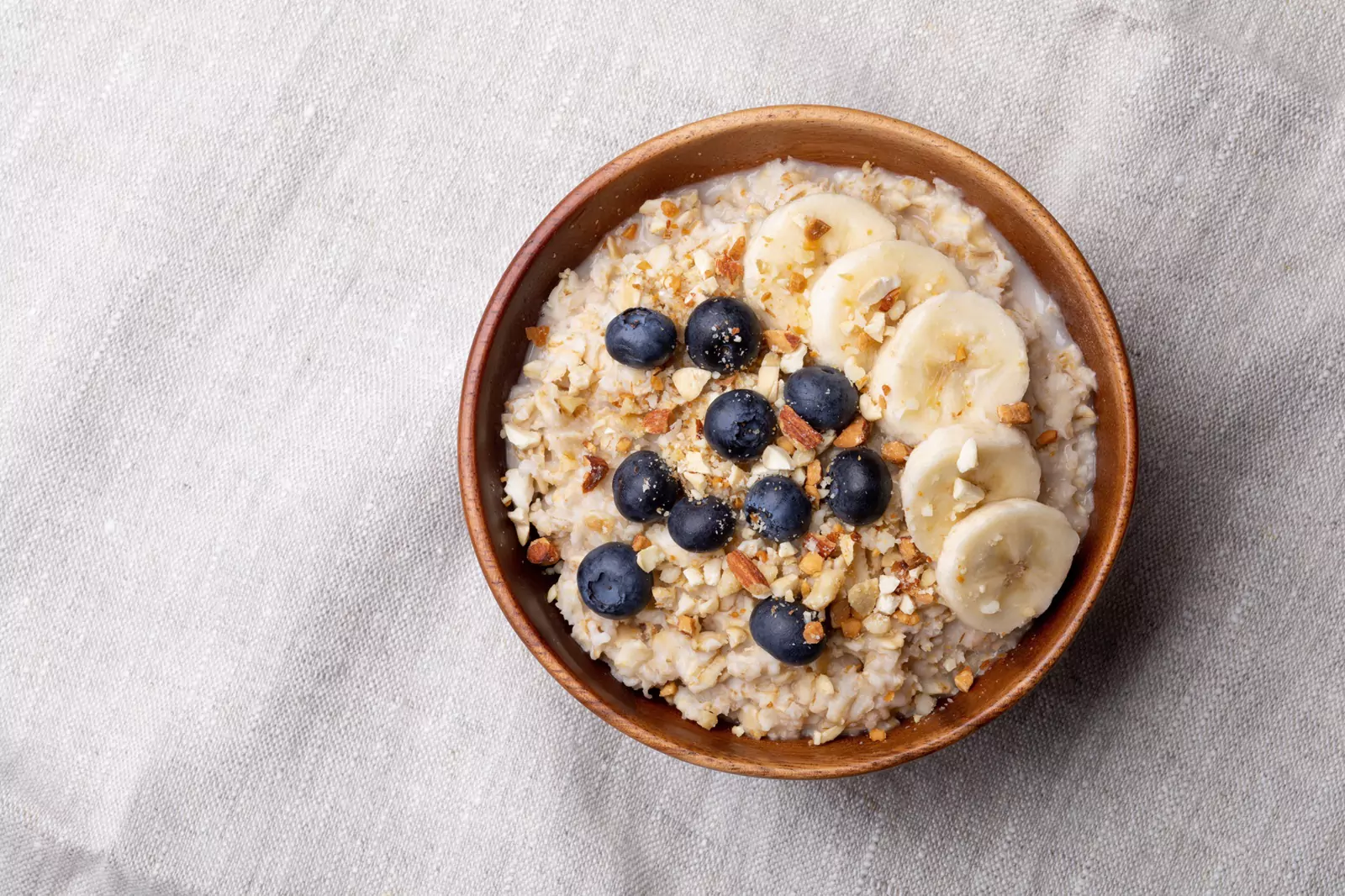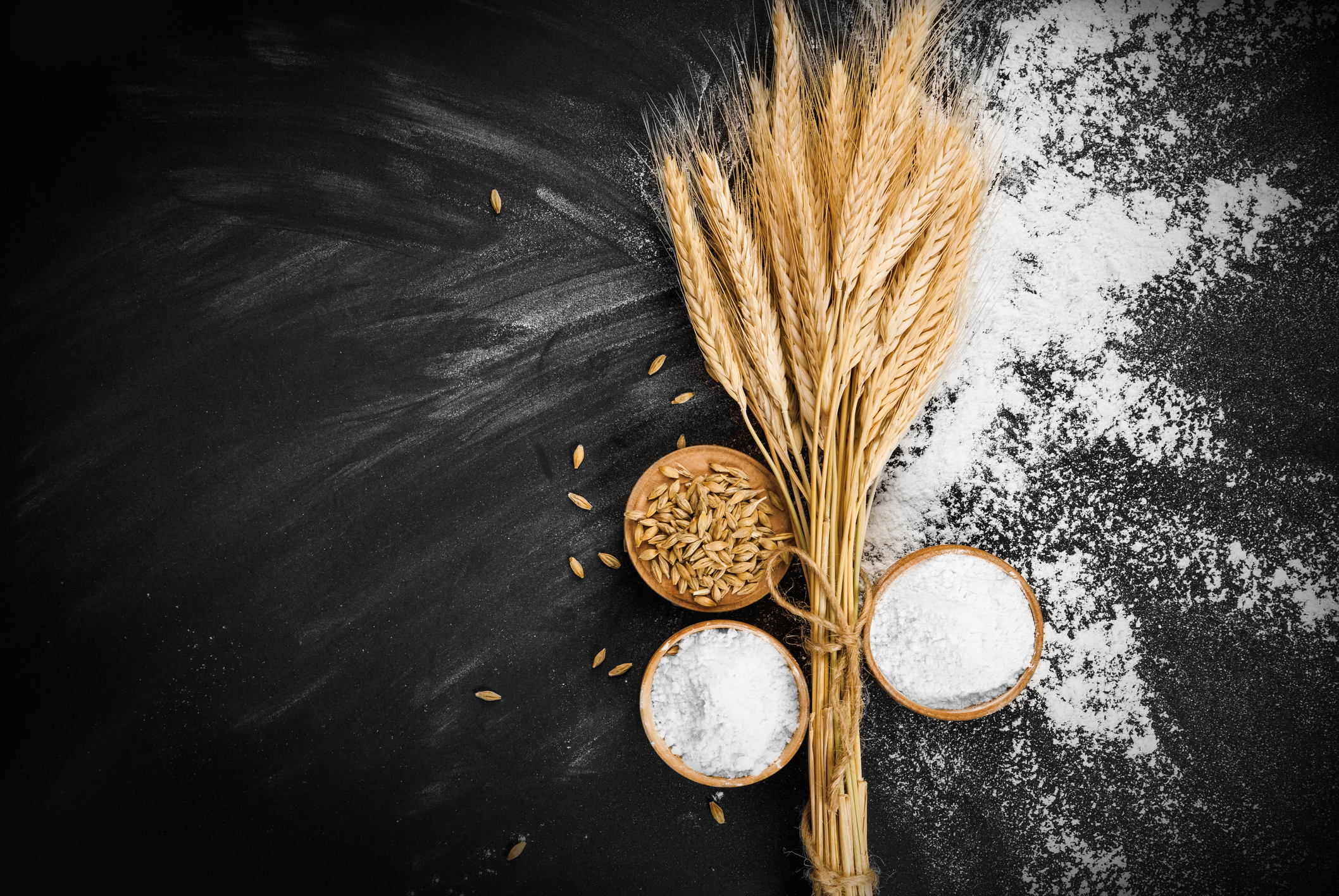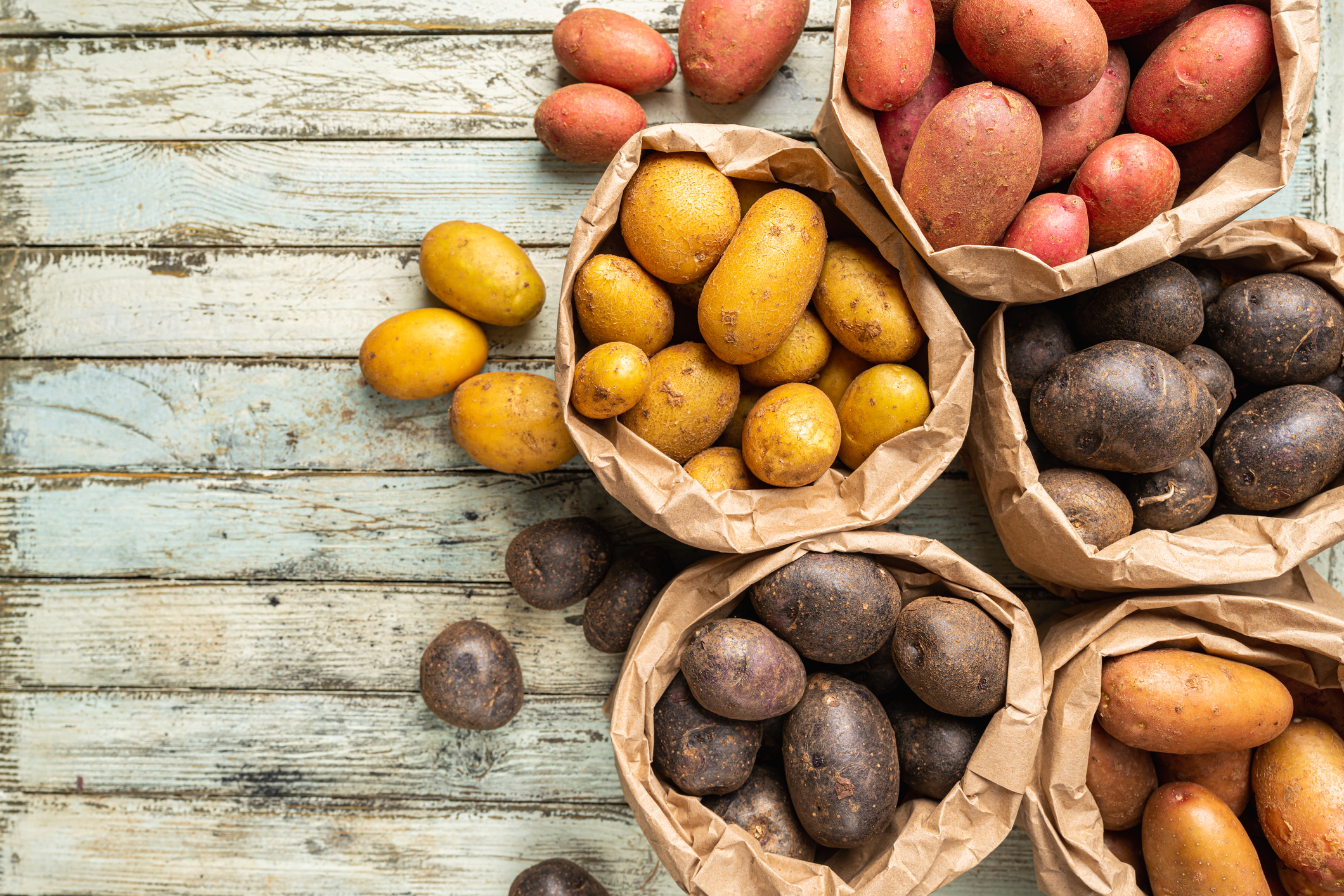





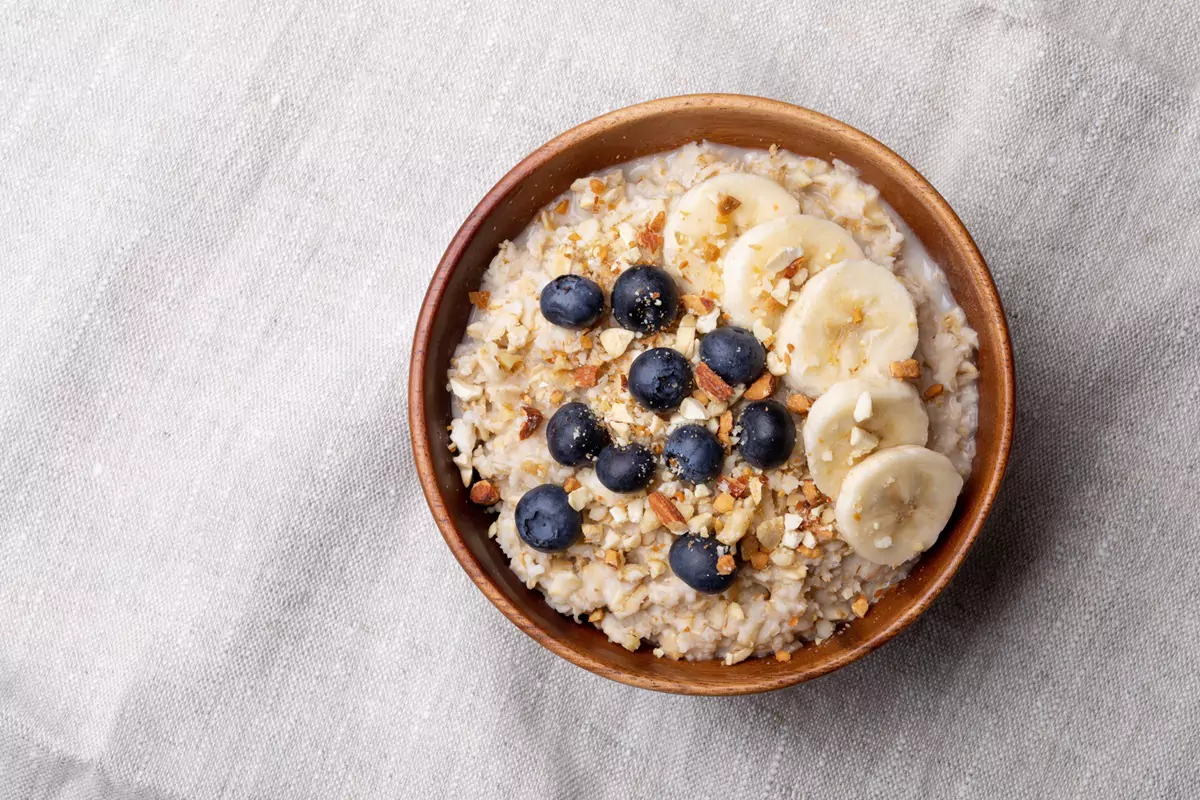
Is Oatmeal Good for Diabetes? A Comprehensive Guide


Table of Contents
- Understanding Diabetes and Diet
- Can People With Diabetes Eat Oats?
- Impact of Oatmeal on Blood Sugar
- Oatmeal and Blood Sugar: The Connection
- Different Types of Oats and Their Effects
- Rolled Oats and Diabetes
- Are Quaker Oats Good for Diabetes?
- Steel Cut Oats and Diabetes
- Incorporating Oatmeal in a Diabetic Diet
- Diabetic Diet: Oatmeal as a Healthy Option
- Conclusion
- About The Author
Have you ever stopped to consider, "Is oatmeal good for diabetes?" Imagine a comforting, steaming bowl of oatmeal, garnished with a sprinkle of cinnamon and a drizzle of honey. It’s the kind of breakfast that not only warms you up from the inside but also fills you up until lunch. But here's the catch - if you're living with diabetes, that simple, hearty breakfast could feel like walking a tightrope, balancing between dietary needs and blood sugar levels. For those grappling with diabetes, dietary choices become an essential part of managing the condition.
They have to contemplate how each food will affect their blood sugar levels. If you're part of this group, you know that it's not just about what tastes good—it's also about what's good for your body. And then there's oatmeal the humble, hearty grain often lauded as a health food but does it hold up to scrutiny when it comes to diabetes? You're not alone in this query.
It’s a question asked by millions of individuals managing diabetes around the globe: Can the much-loved breakfast staple oatmeal fit into a diabetic-friendly diet? In this comprehensive article, we will break down the facts and myths about oatmeal and diabetes. We'll take a deep dive into the world of oats and their impact on blood sugar levels, exploring the different types of oats and how to incorporate them into a diabetic diet. So, hold on to your breakfast spoons, we're about to take an enlightening journey into the world of oats and diabetes!
Understanding Diabetes and Diet
In diabetes, blood sugar levels can get too high, causing various health complications. Hence, it becomes essential for people with diabetes to consider their diet carefully. The goal is to balance carbohydrate intake which affects blood sugar levels the most, with proteins, fats and fiber which have less immediate impact. It's a careful calibration, one that demands understanding the nature of the foods you're consuming and their effect on your blood sugar.
Among various foods, carbohydrate-rich foods have the most significant impact on blood sugar levels. The body breaks down carbohydrates into glucose which enters your bloodstream and raises your blood sugar levels. But it’s not just about eliminating carbohydrates from your diet, it’s about choosing the right ones. Complex carbohydrates, found in whole grains, legumes and some vegetables, are better options because they’re rich in fiber.
They get digested slowly, preventing sudden spikes in blood sugar levels. On the other hand, simple carbohydrates like white bread, soda and sweets, can rapidly increase blood sugar levels and should be limited in a diabetic diet. This understanding of diet and diabetes management leads us to the question of where oats, particularly oatmeal, fit into this picture.
Can People With Diabetes Eat Oats?
The question, "Can people with diabetes eat oats?" is common. The answer is an unequivocal yes, but with a caveat. Not all oats are created equal and understanding this is crucial for incorporating oats into a diabetic-friendly diet. Oats, in their whole grain form, are an excellent source of dietary fiber, particularly a type known as beta-glucan. This soluble fiber has been linked to various health benefits, including improved heart health and weight management.
Most notably, for individuals with diabetes, beta-glucan has shown to slow down the absorption of sugars into the bloodstream, leading to a slower, more gradual rise in blood sugar levels - a desirable outcome in diabetes management. Furthermore, oats are low on the glycemic index (GI), a system that rates foods by how much they raise blood sugar levels. Low-GI foods like oats cause a slow, steady rise in blood sugar, rather than a sharp spike. This aspect makes them a favourable choice for individuals managing diabetes.
However, while oats can fit well into a balanced diabetic diet, it's essential to note that not all oats are created equal. Oats come in various forms, each with a different level of processing and this processing can affect their GI score and overall nutritional value.
In the following sections, we'll explore the different types of oats, from steel-cut and rolled oats to instant oats, examining their effects on blood sugar and providing insights into which ones are the most beneficial for individuals managing diabetes.
Understanding that diabetes can indeed eat oats is the first step. The next step is knowing which oats to choose. So, as we delve deeper, remember - when it comes to oats and diabetes, it's not just about 'can,' it's also about 'how.'
Impact of Oatmeal on Blood Sugar
One of the critical aspects to understand when managing diabetes is how different foods influence your blood sugar levels. To this effect, it's essential to explore the connection between oatmeal and blood sugar.
Oatmeal and Blood Sugar: The Connection
When it comes to foods that have a positive impact on blood sugar, oatmeal often tops the list. But why is that? The primary reason lies in the glycemic index (GI) of oats.
The glycemic index is a scale that ranks carbohydrates in food on a scale from 0 to 100 based on how quickly and significantly they raise blood sugar levels. Foods with a low GI are digested and absorbed slowly, resulting in a slower and lower rise in blood sugar. Conversely, high GI foods cause a rapid and significant spike.
The average glycemic index of oatmeal sits at around 55 which is considered low. This means that oatmeal is digested and absorbed at a relatively slower rate, preventing a rapid spike and crash in blood sugar levels.
For people living with diabetes, this gentle rise and fall in blood sugar levels are crucial. It helps avoid sudden blood sugar spikes and keeps the levels stable for longer periods. However, it's important to note that not all oatmeal is created equal. The processing of oats can significantly influence their GI, meaning some types of oatmeal might cause a faster blood sugar rise than others.
For instance, instant oats are highly processed which means they have a higher GI and can raise blood sugar levels more quickly. On the other hand, steel-cut oats or old-fashioned rolled oats are less processed, hence they have a lower GI, making them a better option for people with diabetes. Moreover, oatmeal is packed with dietary fiber, particularly a type of soluble fiber called beta-glucan. Research suggests that beta-glucan can slow down the absorption of sugar into the bloodstream, reducing the likelihood of blood sugar spikes.
In addition to that, fiber also helps in maintaining a feeling of fullness, preventing overeating and thereby indirectly contributing to better blood sugar management. However, how you serve your oats also matters. Adding a lot of sugar or sweeteners can negate the benefits of oatmeal’s low GI. So, to keep oatmeal diabetes-friendly, consider topping it with fresh fruits, nuts and seeds for added fiber and nutrients, instead of sugar or sweet syrup. Spices like cinnamon can add flavor without raising the dish's GI. Remember that while oatmeal has the potential to be beneficial for people with diabetes, it's essential to consume it as part of a balanced diet.
The benefits of oats can contribute to overall blood sugar control, but they can't single-handedly manage diabetes. The key is in balance and portion control, as even too much of a good thing can be harmful. In essence, understanding the relationship between oatmeal and blood sugar control requires considering the type of oats, how they're prepared and the serving size. If all these factors are taken into account, oatmeal can indeed be a healthful part of a diabetes management plan.
However, diet is only one part of managing diabetes and it's crucial to pair it with regular exercise, appropriate medication and regular blood sugar monitoring. If you're considering making any significant changes to your diet, remember to consult your healthcare provider or a nutritionist to ensure it suits your specific needs and conditions.
Different Types of Oats and Their Effects
When it comes to choosing oats, it's essential to understand that not all oats are created equal. From rolled oats to Quaker oats and steel-cut oats, each type has different nutritional profiles and impact on blood sugar levels. Let's delve into these in more detail.
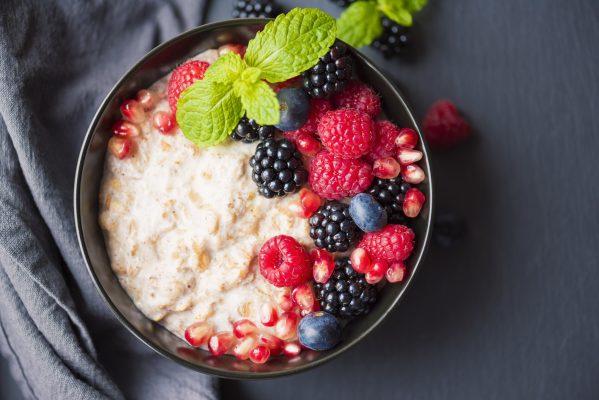
Rolled Oats and Diabetes
Firstly, let's address the connection between "rolled oats and diabetes". Rolled oats, also known as old-fashioned oats, are produced by steaming and rolling whole oat groats. This process allows them to cook faster and gives them a slightly softer texture when cooked which many find appealing.
In terms of nutritional value, rolled oats are packed with dietary fiber, especially beta-glucan, a type of soluble fiber that can help slow down digestion, making you feel full for longer and prevent rapid spikes in blood sugar levels.
This makes them a suitable option for people with diabetes looking to manage their condition with diet. Furthermore, oats are rich in vitamins and minerals like magnesium and B vitamins that have been shown to aid in insulin sensitivity.
Despite this, portion control is crucial when consuming rolled oats. Overindulging can lead to an unwanted increase in blood sugar levels. Also, consider the toppings you add to your oats. Opt for fresh fruits, nuts and seeds and avoid high-sugar add-ons like maple syrup or brown sugar.
Are Quaker Oats Good for Diabetes?
Moving on, you might be wondering, "are Quaker oats good for diabetes?" Quaker is a brand that produces various oat products, but for this discussion, we'll focus on their instant oats. Instant oats are pre-cooked, dried and rolled thinner than old-fashioned oats.
They cook quickly and have a mushy texture when prepared. While they still have the core benefits of oats, including fiber and nutrients their glycemic index is slightly higher due to the additional processing they undergo.
This means they might cause a quicker rise in blood sugar levels compared to steel-cut or rolled oats. So, are they suitable for individuals with diabetes? While not the optimal choice compared to less processed varieties they can be part of a diabetic diet with proper portion control and minimal added sugars.
Steel Cut Oats and Diabetes
Lastly, let's examine "steel cut oats and diabetes". Steel-cut oats, also known as Irish oats, are the least processed type of oats. They're simply whole oat groats chopped into pieces but not rolled. This minimal processing leaves them with a chewier texture and nuttier flavor compared to rolled or instant oats.
From a nutritional standpoint, steel-cut oats have slightly more fiber and are denser which can contribute to a feeling of fullness and slower digestion, hence a more gradual rise in blood sugar levels. This makes them an excellent choice for those managing diabetes.
However, steel-cut oats do take longer to cook which could be a downside for those looking for a quick breakfast option. To circumvent this, consider making a larger batch at the start of the week and reheating portions as needed.
Incorporating Oatmeal in a Diabetic Diet
A healthful, well-balanced diet plays a crucial role in managing diabetes and maintaining stable blood sugar levels. But with the myriad food choices and dietary restrictions, figuring out what to eat can sometimes feel overwhelming. Especially when it comes to oatmeal, a food commonly associated with health and wellness, one might wonder if it’s beneficial or detrimental for a diabetic diet.
Oatmeal is a whole grain and a rich source of fiber, especially beta-glucan, a type of soluble fiber that can help manage blood sugar levels. Moreover, oats have a lower glycemic index (GI) which means they release glucose more slowly and steadily, preventing a sudden spike in blood sugar levels. However, not all oatmeal is created equal. The various forms of oats – steel-cut, rolled, instant – each come with their own set of characteristics that can have different effects on your blood sugar.
Diabetic Diet: Oatmeal as a Healthy Option
Including oatmeal in a diabetic diet is a subject of continual debate among experts and people living with diabetes. With so many varieties of oatmeal available, how can we identify which is the healthiest option?
Steel-Cut Oats: Also known as Irish oats, steel-cut oats are the least processed form. They are merely whole oat groats chopped into pieces but not rolled. They have the lowest GI among all oat types, meaning they have the least effect on blood sugar.
Rolled Oats: Rolled oats, also known as old-fashioned oats, undergo more processing than steel-cut oats. They are steamed, rolled and flattened which allows them to cook more quickly. Their GI is slightly higher than steel-cut oats but still considered low.
Instant Oats: Instant oats are the most processed of the three types. They are pre-cooked, dried, rolled and then pressed thinner than rolled oats. This extra processing reduces cooking time but unfortunately also strips away some fiber and increases their GI. Therefore they are less effective at managing blood sugar levels. As a rule of thumb, less processed oat types like steel-cut and rolled oats are generally considered better options for those managing diabetes. They are higher in fiber and can help maintain steady blood sugar levels. But it's not just about the type of oats you choose; it's also about what you pair them with.
Opt for toppings that are low in sugar and high in protein and healthy fats, such as nuts, seeds and fresh berries. Avoid adding excess sugars, such as honey or brown sugar. Spices like cinnamon or nutmeg can add flavor without the extra carbs. It's important to remember that while oats can be a healthy addition to a diabetic diet, portion control is key.
Too much of any food, even healthy oats, can lead to an increase in calorie intake and potential blood sugar spikes. Remember, everyone's body responds differently to foods and what works for one person may not work for another. It's always a good idea to monitor your blood sugar levels after eating oatmeal to understand how it impacts you personally.
Therefore, while oats have potential benefits for people with diabetes they should be part of a balanced diet that includes a variety of other nutrient-rich foods. It's always recommended to consult with your healthcare provider or a nutritionist before making significant dietary changes.
This way, we see that oatmeal can be a part of a diabetic diet if chosen wisely and eaten in appropriate portions. It's not about completely eliminating certain foods, but rather about understanding how to balance them for optimal health. After all, managing diabetes doesn't mean you have to miss out on delicious food and a warm, comforting bowl of oatmeal is no exception.
Conclusion
Now that we've delved deep into the role of oatmeal in a diabetic diet, explored the differences between various types of oats and considered the benefits of supplements like SugarMD Advance Glucose Support, we can conclude with confidence.
With careful consideration and guidance from healthcare professionals, oatmeal can indeed be a beneficial addition to a diabetes-friendly diet. However, as with any dietary change, it's important to monitor blood sugar levels and adjust portions and preparation methods as needed. Here's to healthful eating and effective diabetes management!
About The Author
Meet Dr. Ahmet Ergin a highly skilled and dedicated endocrinologist with a passion for diabetes care. Dr. Ergin earned his medical degree with honors from Marmara University in Istanbul. He completed internal medicine residency and endocrinology fellowship at Cleveland Clinic.
Dr. Ergin is board-certified in Internal Medicine, Endocrinology, Diabetes and Metabolism due to his vast medical expertise. He's a certified diabetes educator, author of "The Ultimate Diabetes Book," and founder of "the SugarMD YouTube channel."
Dr. Ergin offers exceptional diabetes care to his patients in Port Saint Lucie, FL, helping them manage effectively. Disclaimer: These statements have not been evaluated by the Food and Drug Administration. Information on this website isn’t intended to treat, cure or prevent any disease. Discuss with your doctor and do not self-treat.
Written By Dr. Ahmet Ergin
456 total articles
Meet Dr. Ahmet Ergin, a highly skilled and dedicated endocrinologist with a passion for diabetes care. Dr. Ergin earned his medical degree with honors from Marmara University in Istanbul. He completed internal medicine residency and endocrinology fellowship at Cleveland Clinic. Dr. Ergin is board-certified in Internal Medicine, Endocrinology, Diabetes, and Metabolism due to his vast medical expertise. He's a certified diabetes educator, author of “The Ultimate Diabetes Book,” and founder of “the SugarMD YouTube channel.” Dr. Ergin offers exceptional diabetes care to his patients in Port Saint Lucie, FL, helping them manage effectively. For a closer look into his insights and experiences, connect with Dr. Ahmet Ergin on LinkedIn, Instagram, and YouTube.”
Disclaimer: These statements have not been evaluated by the Food and Drug Administration. Information on this website isn't intended to treat, cure or prevent any disease. Discuss with your doctor and do not self-treat.
Products









